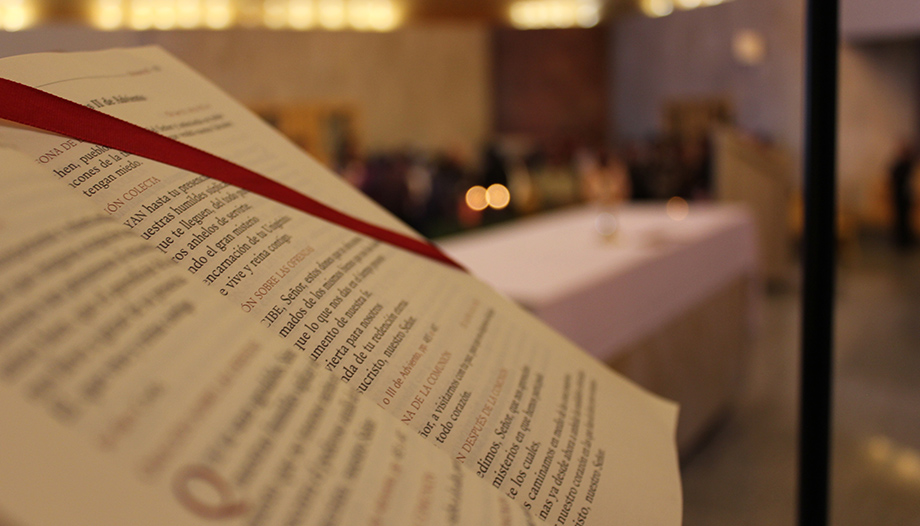It is delightful to listen to today's second reading (1 Cor 1:1-3) and to perceive the freshness of early Christianity. St. Paul addresses one of the first Christian communities and does so with great beauty, calling them "those sanctified by Jesus Christ, called saints with all who in every place call upon the name Our Lord Jesus Christ."
It reminds them, and us, of their (our) call to holiness. To be a Christian is to be called to holiness, regardless of where we are geographically or existentially. How? First of all, through prayer to Jesus, who is the Lord of all.
It is worth remembering who the Corinthians were: people from the city of Corinth in ancient Greece, which Paul had evangelized. Corinth was a pagan city famous for its immorality. Paul has to scold the Corinthians for dividing into factions and for tolerating a scandalous case of incest. The Corinthians loved the extraordinary, the special gifts of the Holy Spirit - speaking in tongues and prophesying - and the apostle has to help them understand that what matters much more is love: not the extraordinary gifts, but the daily effort to love one another.
The conversion of these Corinthians to Christianity is part of the fulfillment of the first reading (Is 49:3,5-6). God's salvation is coming to "the ends of the earth", including pagan Corinth. It is not only for Israel, but for all. Hence Paul tells the Corinthians that he is "their Lord and ours".
Today's readings can remind us of our own call to holiness, and the need to keep alive the freshness of Christianity, without allowing it to stagnate in our lives or communities. It may happen that we will have to live and witness in an immoral place. We will have our faults and excesses, and at times we will need to be corrected. But it is better to be corrected for excess of passion than for lack of it. Whatever could be said of the Corinthians, it would not be that they lacked enthusiasm.
But this enthusiasm is not merely a human feeling. Thus, today's Gospel (Jn 1:29-34) points out its source: the action of the Holy Spirit in our souls. Jesus baptizes with the Holy Spirit, "he is the Chosen One of God" and the Spirit rests upon him. John the Baptist is recalling the scene of Christ's baptism in the Jordan River. In this way, he invites us to also enter into those waters to live our baptism in our daily lives. Baptism is not simply a past event. Its waters must well up in us every day. It is a living spring, pouring forth good water, the grace of God, which is then poured out on others through our example and our witness to Christ: with our family and friends, in our leisure and in our place of work or study.
Homily on the readings of Sunday II in Ordinary Time (A)
The priest Luis Herrera Campo offers its nanomiliaa small one-minute reflection for these readings.









